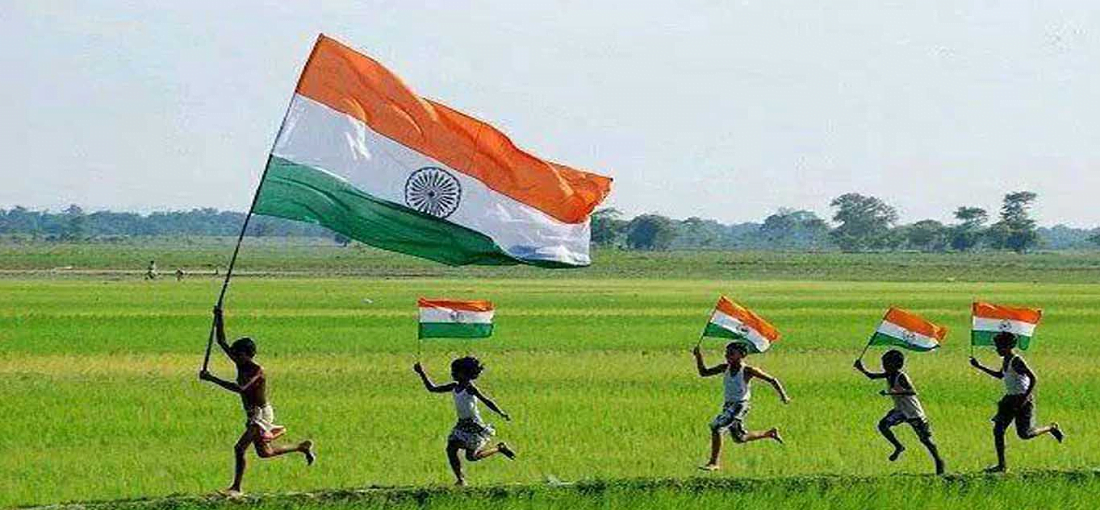“Those who do not learn history are doomed to repeat it.”
-George Santayana
What comes to your mind when you first think of the word history? Or well, the history that you should know but do not have access to?
What do we consider our history? Do we actually know the history of our country? Are we moving ahead or repeating the history?
There are too many questions which come to my mind when someone says the word ‘history’. We think we know the history of our country because we studied about it in our textbooks. But do we realise that there are histories that aren’t passed down, stories that are never told. There are whole experiences which are not talked about and are attempted to be erased from the memory. I believe how a person thinks of history has a lot to do with where they come from, where their origins lie, and also where they actually belong.
The idea of belonging to the nation which you see as your own is debatable in India. For example, an upper caste Hindu in India is never questioned whether ‘he’ is Indian or not. ‘He’, because the treatment of women in history and now have been similar to that of a cattle as ‘they’ are always talked about in reference to their owners or the men that they ‘belong’ to. So their opinion, religion, or caste does not matter till they have to be reared, traded, raped, or killed.
The screams in the name of religion divided the ‘secular’ nation into two parts – ‘us’ and ‘them’. The divide has only widened since.
India, being the nation of ‘forgetters’, prefers to always move on. And a part of moving on is to forget. The memories of Partition is what accompanies the Independence day. We have never truly dealt with the aftermath of Partition and the whole traumatic experience of that time is simply swept under the carpet. It was bigger than the blood shed. It was bigger than the rapes. The screams in the name of religion divided the ‘secular’ nation into two parts – ‘us’ and ‘them’. The divide has only widened since.
The recent release of Mulk made me question the whole idea of nation and belonging. Who belongs to this nation and who does this nation belong to? The nation that got independence from the British, but never got over the mindset of the ‘other’ versus ‘us’. Where do women fit in the divide between the ‘us’ and the ‘them’ when women are a constant ‘them’ in this patriarchal setting? Gender gets overshadowed when it comes to religion/caste. While some simply believe the treatment of a woman is decided on the basis of traditions and culture, it is important to to analyse the culture which is again male-centric.
Also read: Feminist History Is Important. Here’s Why You Need To Pay Attention.
A woman’s choice is dictated by men. But when we remove gender from the intersection, the genocide which is happening right now in the country becomes in the name of religion and the power. The power which dictates and the power which decides who belong and who does not to the ‘HINDU-stan.’
When the experience of Partition was recorded in the Government, the history of women and minorities did not form a part of the narrative of the Indian history. This also makes me question the whole idea of voice and who actually has it. The prevalence of the same questions last even today. We live in a place where people have the ‘Right to Freedom of Religion’ but live with the risk of getting killed for the same. A place where people who clean the bodily wastes and places where the ‘common man’ would not walk past without covering their faces are not treated as humans. A country where there are acts to protect cows, but the legitimisation of the rights of the LGBTQIA+ community is still under question. Lynching takes place on the baseless assumptions and rumours about the presence of the beef and cows. Citizenships are offered after considering the religion or caste of a person. Women are raped in order to show them their position in the society, roaming around with a guy and killed in the name of honour. A country where the Beti Bachao campaign is popular but the question of who is the daughter of this nation still remains intact.
Women are still being taken away and put to their ‘assigned’ homes or shelter homes.
One of the lesser talked experiences of the Partition is women being forcefully taken away from the country they chose to live in or got married in to the country that they belonged to on the basis of their religion. I don’t see how it is any different considering the Hadiya-Fatima case. Women are still being taken away and put to their ‘assigned’ homes or shelter homes. The shelter homes which are there to ‘protect’ them end up violating them further. The same happened to women after Partition, and the same happens today.
Also read: Exceptional Women: The Erasure Of Women From Public And Private Memory
History is not always a collection of objective facts that the government documents or leads us to believe. It is much more than that. So, do we really know our History? Or is that why we are repeating it, so that we don’t forget it at least this time around? Who knows?
Featured Image Source: Boom Live
About the author(s)
Grishma Trivedi is currently pursuing her Doctoral Research at The Maharaja Sayajirao University of Baroda and working at Ahmedabad University. Her research and teaching interests explore the relations between films, literature, culture, identity politics and media, especially as they unfold in contemporary India.




